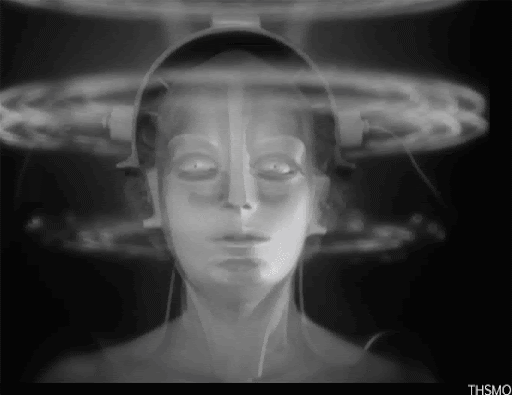3 min read
So You Think AI Is Going to Replace Us? What AI Can and Can’t Do
You might think that current Artificial Intelligence or AI is a know-all machine capable of doing nearly anything. But this is far from the truth. While AI can be pretty smart at one thing, it is often blind to everything else. So, while there are myths and truths about AI replacing our jobs, let’s explore the effects of AI in the current market and, more importantly, what it can and can’t do for you.

Understanding Modern AI: What It Can Do
Today, we’ve got AI nailed down to “Narrow AI.” It’s a true expert at crunching numbers, playing chess, or even sorting your emails, but throw something new its way? Well, it depends. AI — specifically Machine Learning — can learn new things within a structured environment.
Take us, for example. Our AI capabilities enable Botkeeper Infinite to understand how a specific company classifies different expenditures, improving its ability to categorize transactions right on the first try. But learning the Macarena? No chance.
While Artificial General Intelligence (AGI) is still science fiction (we prefer the term science in the making), it is closer than we may think. This isn’t about a computer that just follows orders. AGI’s the real deal—thinking, learning, adapting. But getting from narrow to general AI is a leap, not a step. AGI means building an AI mind that’s not just brilliant at performing a pre-programmed task but also understands it.

What the Current AI Market Looks Like
We are entering an unprecedented technological revolution. According to Forbes, the AI market is projected to reach $407 billion by 2027, and tools like ChatGPT might become a go-to over traditional search engines for most people. However, AI’s growth has been thrilling for some and terrifying for others. For instance, for a significant number of workers, the use of AI is an increasing concern for the future of their employment.
Moreover, the World Economic Forum (WEF) anticipates the most significant job losses in administrative fields and traditional security, factory, and commerce roles by 2027. Yet, other professions are thriving because of the implementation of AI into their workflows. For example, 54% of IT professionals incorporate these technologies into everyday activities, while marketing and advertising are at 35%. The future seems brighter than one might initially think, as an astonishing 81% of office workers believe AI can improve their jobs, agreeing this technology can enhance their decision-making and efficiency.
So, AI Is Going to Replace Us?
Do you want the short or the long answer?
The short answer is no. The long answer: Nuh-uh.
According to APA’s 2023 Work in America, workers are experiencing what is now known as “AI anxiety.” About 38% fear AI could make their jobs — or parts of them — obsolete. However, the fear of AI was only present across some groups. Anxiety was higher among individuals below 58 years old, those concerned about potential economic slumps, and people of color.
Moreover, AI anxiety was higher in people who showed symptoms of burnout and were working under high-stress conditions, suggesting that concerns about AI are more related to job conditions than the technology itself. Yet, AI can help improve job conditions, as it helps employers monitor burnout symptoms and optimize workflows to create an environment where workers can thrive and succeed.

So, while AI can generate some anxiety – and we totally get that – this technology is here to make our lives easier. What’s more, we still can do plenty of things that AI can’t do, like:
-
Feeling the Feels: Let’s face it — AI is pretty clueless when it comes to feelings. It just can’t get on the same emotional level as humans. It takes a human to understand someone’s worries or cheer them up, especially in client interactions (even though Mark Joeze’s “Her” might disagree with us).
-
Being Actually Funny: Have you ever heard a good AI-generated joke? Leave the sarcasm, the wittiness, and the edgy and creative writing to people.
-
Attention to Detail: Humans can pick up small clues to solve big problems when things get tricky. AI might crunch numbers quickly but doesn’t always understand the finer points of a complex issue.
-
Storytelling: Humans are great at sharing stories and learning from each other’s experiences.
-
Building Genuine Relationships: Building trust and friendship is a human superpower. People get to know each other, share secrets, and have each other’s backs. AI has no back whatsoever.
-
Understanding Financial Complexities: A human accountant is what you need to understand your finances and sometimes the chaos that they bring. Though fast with figures, you’ll always need a human hand to analyze the data AI gives you.
AI will never replace jobs that require these skills. Nonetheless, some jobs are destined to change, and that could actually be a good thing. Remember when Grandpa told you about his uncle, a leech collector who treated diseases? Or what about those switchboard operators? Neither do we, and we prefer to be treated by doctors instead of a leech sucking us dry to balance our humors. As with every new technology introduced on the market — like the radio, the computer, and even the smartphone — the future holds new jobs that we’ve probably never heard about, so adaptability is crucial to integrating AI into our skillset.
Don’t Replace, Adapt
A successful AI integration should leverage the strengths of AI to make tasks efficient and error-free while focusing on developing human skills that work hand in hand with these technologies. Remember, this is not a replacement scenario but an opportunity to increase human potential with the aid of AI. Still, we must also make the workplace adaptive to remain competitive and encourage workers to learn more about what AI can and can’t do for them.
On another note, if you want to keep up with these changes, why not take a look at Botkeeper Infinite and take advantage of what AI can do while freeing up your employees to focus on what they do best?




